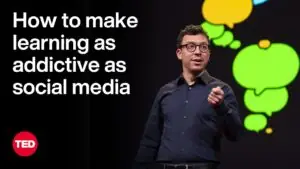Can you imagine working super hard on your essay, only to end up in a plagiarism mess because you tried to help a classmate? A grad student recently found themselves in that exact situation, one that many students fear but think will never happen to them. After sharing their hard-worked essay with a classmate for guidance, they were blindsided by an email from their professor.

✅ AI Essay Writer ✅ AI Detector ✅ Plagchecker ✅ Paraphraser
✅ Summarizer ✅ Citation Generator
Key Takeaways
- Helping classmates is great, but sharing your own work can sometimes lead to accusations of plagiarism. Know where to draw the line.
- Different schools have different rules about academic integrity. Make sure you know and follow your school’s specific guidelines on collaboration and sharing.
- If you find yourself in a situation like this, being honest and providing proof of your work can help clear up misunderstandings. Always be upfront with your professors.
Who hasn’t helped out a friend in their life? After all, isn’t that what friends are supposed to do – give each other a hand when someone’s in trouble? Still, in the graduate school setting, where the pressure is always on, such a simple act of kindness can sometimes backfire in unexpected ways.
A grad student recently found themselves in a troubling situation, one that echoes the fears of many in academia.
“I received an email from my professor saying my work is almost identical to someone else’s from a different class. Turnitin detected similarity. It is an assignment based on a client from internship, I am in the same internship as my classmate. My classmate asked if they could see my assignment and I naively said yes. (I realize now how stupid I am). I think they copied my ideas, if not why would turn it in to detect similarity.”
They had innocently shared their essay with a classmate, only to find out later that Turnitin, the plagiarism detection software, had flagged similarities between their work and that of the classmate. This discovery has plunged them into a state of panic, worrying about the consequences and whether their honesty and proof will be enough to clear their name. They now face a critical meeting with their professor, uncertain of what the future holds for their academic career. So what shall one do in this kind of situation?
Proving Innocence
In the tricky situation of being accused of academic misconduct, it’s crucial to prove your innocence, especially when you’re a grad student with so much at stake. The key piece of advice that can help
“If you wrote it in Google Docs, you will have a history of the document – what was written when”.
This record can show that you were the original author and that you shared your essay first. However, Google Docs can’t explain the reason behind sharing your work. You’ll need to verbally communicate to your professor that your intention was purely to guide, not to enable copying. An academic who teaches graduate students adds, “The issue I would be worried about, OP, would be collusion on an essay.” The professor will want to confirm who wrote the essay first, but also if there was any attempt to help the other student pass off your work as theirs.

In such a situation, it’s wise to seek guidance. “If you have an advisor…speak with them about the situation and ask for help.” Documenting the incident in a letter to your professor with any supporting evidence like email correspondence is also advised. Offering to sign a legal document, such as an affidavit, adds seriousness to your claim and helps establish your honesty. Why is this important?
“The other student has likely committed fraud… and may try to take you down instead of accepting responsibility.”
Being found guilty of collusion could impact your ability to graduate or secure future employment. In some places, like Australia, “a finding of academic misconduct can preclude people from becoming the equivalent of a licensed attorney, prescribe drugs, work as a pharmacist, etc.” This situation is not just about the present but has far-reaching implications for your future.
Is it a Harsh Lesson or Just Bad Luck?
When a grad student finds themselves in hot water for sharing their essay with a classmate, it raises the question: is it a harsh lesson or just bad luck? One view is, “OP did nothing wrong if what they say is true. The classmate is the only one in the wrong here.” However, the situation isn’t always black and white. As another commenter points out, “This depends on the academic integrity policies in a school or program.” These rules might see sharing work as part of the problem, even if the intentions were good.
There’s a general consensus that honesty is the best policy. Yet, caution is much advised:
“If you are completely honest with them and show proof that you wrote it, you should be fine. But next time, talk to someone who needs help instead of sending them your entire assignment.”
Others feel the reaction may be overblown. “People are going too far in the comments imo,” says one user, noting that sharing work to help a classmate is common and generally acceptable, as long as everyone does their own work. They advise
“Just show the prof that you wrote your essay independently and explain what happened.”
However, policies can vary significantly. Some schools have strict rules against sharing finished work, highlighting the importance of understanding and adhering to specific institutional guidelines. Ultimately, the incident is a mix of bad luck and a learning experience. The student’s intention to help didn’t align with academic rules, illustrating the delicate balance between collaboration and academic integrity.
Conclusion
The situation with the grad student who shared their essay teaches us a big lesson about being careful in school. Sometimes, trying to help a friend can lead to big problems, especially with strict rules about copying work in universities. This story isn’t just about one student’s trouble; it’s a warning for all about the tricky rules of sharing work in college. Even if you mean well, you could still end up in a tough spot.
It’s really important to know your school’s rules about working with others. Some places are okay with sharing, but others are really strict. It’s all about finding the balance between helping your friends and making sure you don’t break any rules. In the end, this whole thing shows that you need to be cautious in college, especially when you’re trying to be nice and help someone out. It’s a good idea to think twice before you share your work and to always keep in mind what your school policies are.
Follow us on Reddit for more insights and updates.





Comments (0)
Welcome to A*Help comments!
We’re all about debate and discussion at A*Help.
We value the diverse opinions of users, so you may find points of view that you don’t agree with. And that’s cool. However, there are certain things we’re not OK with: attempts to manipulate our data in any way, for example, or the posting of discriminative, offensive, hateful, or disparaging material.